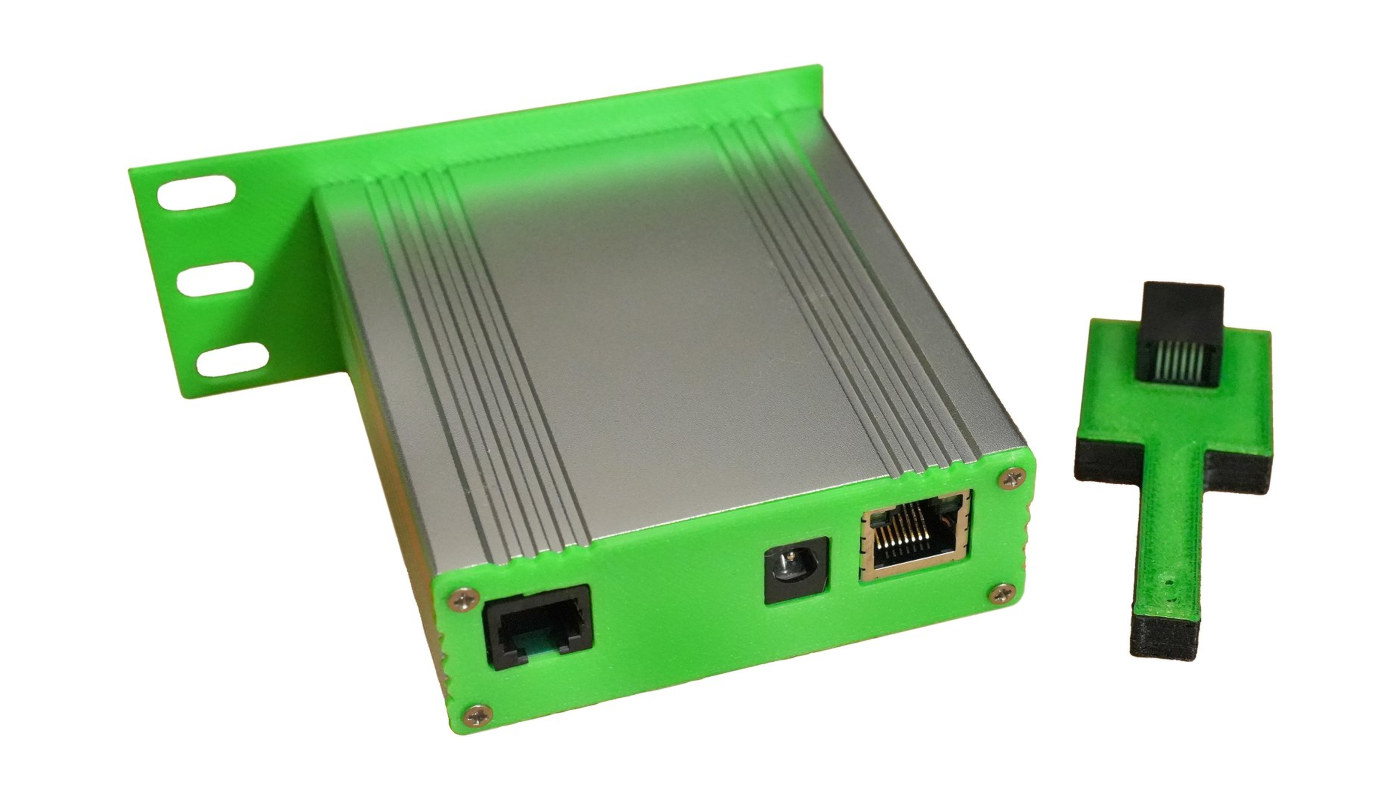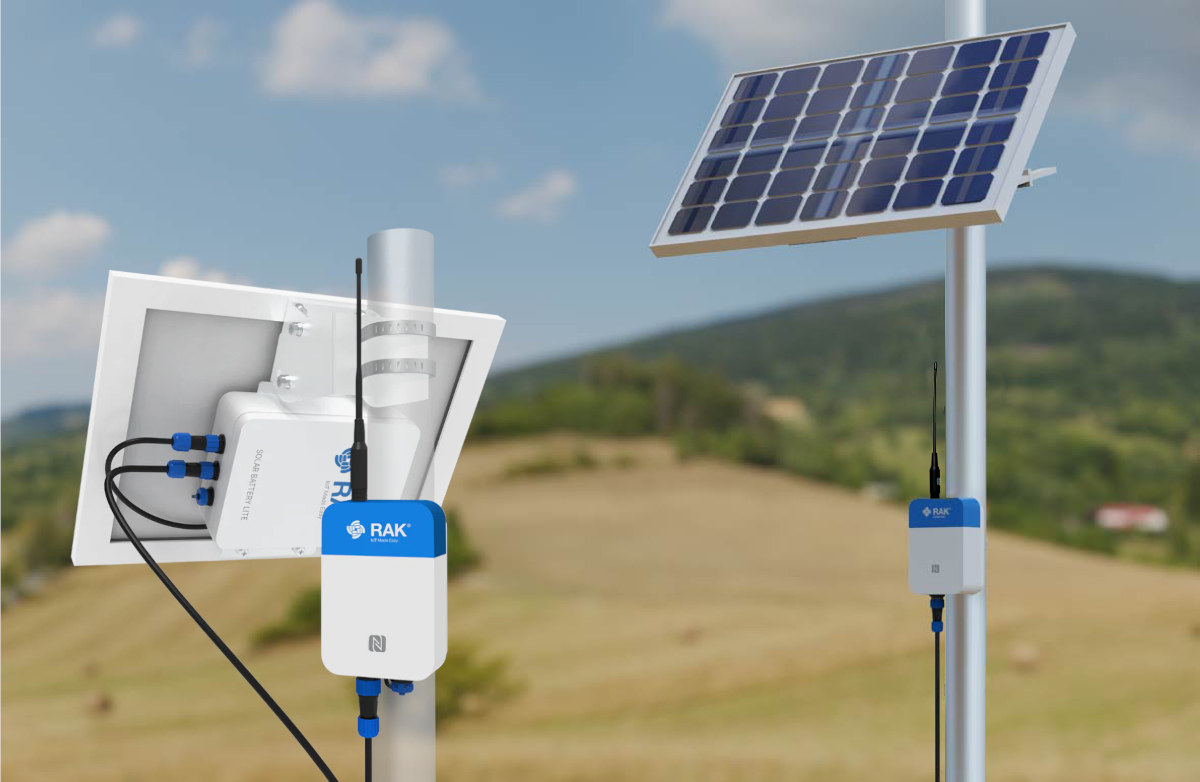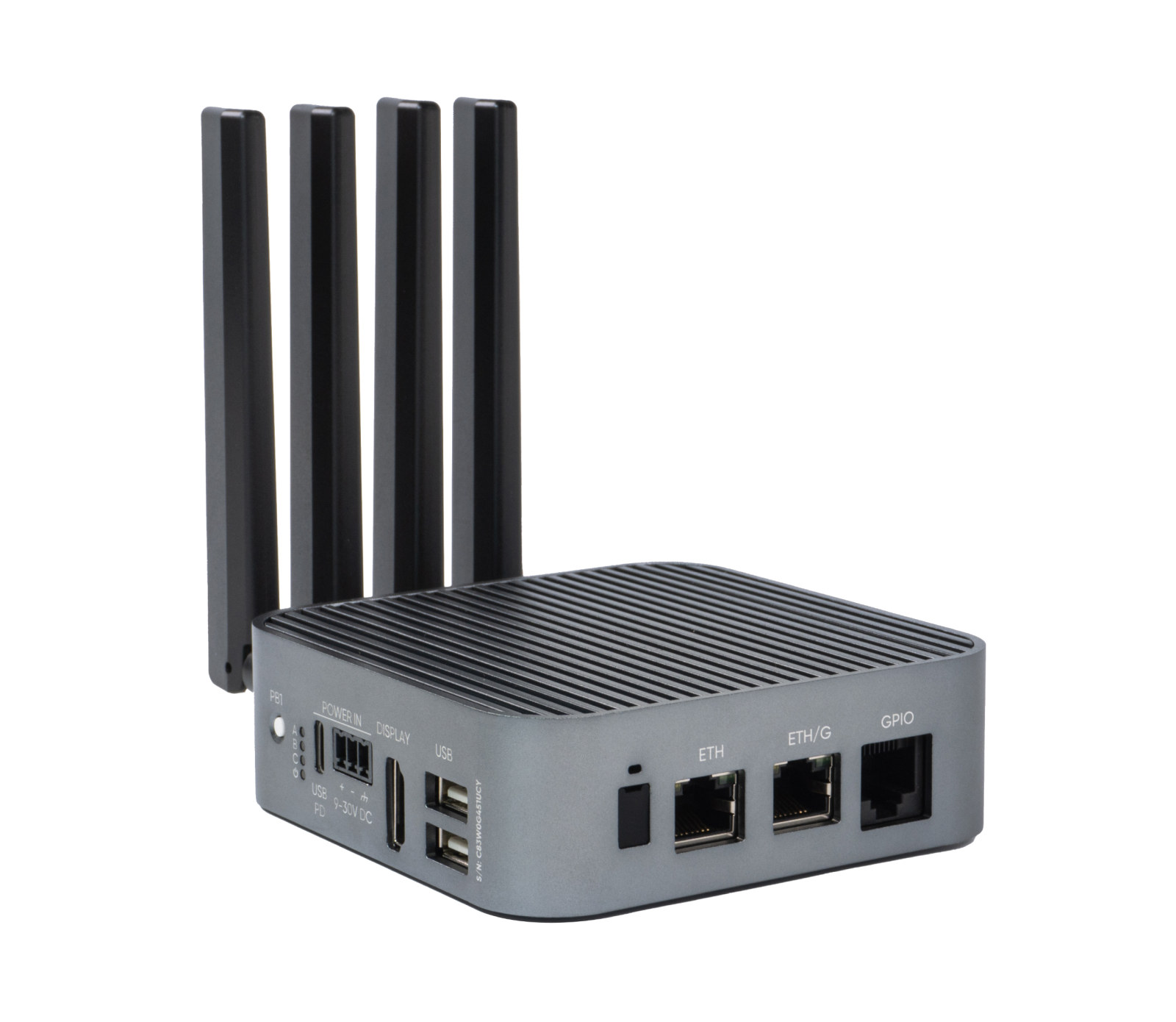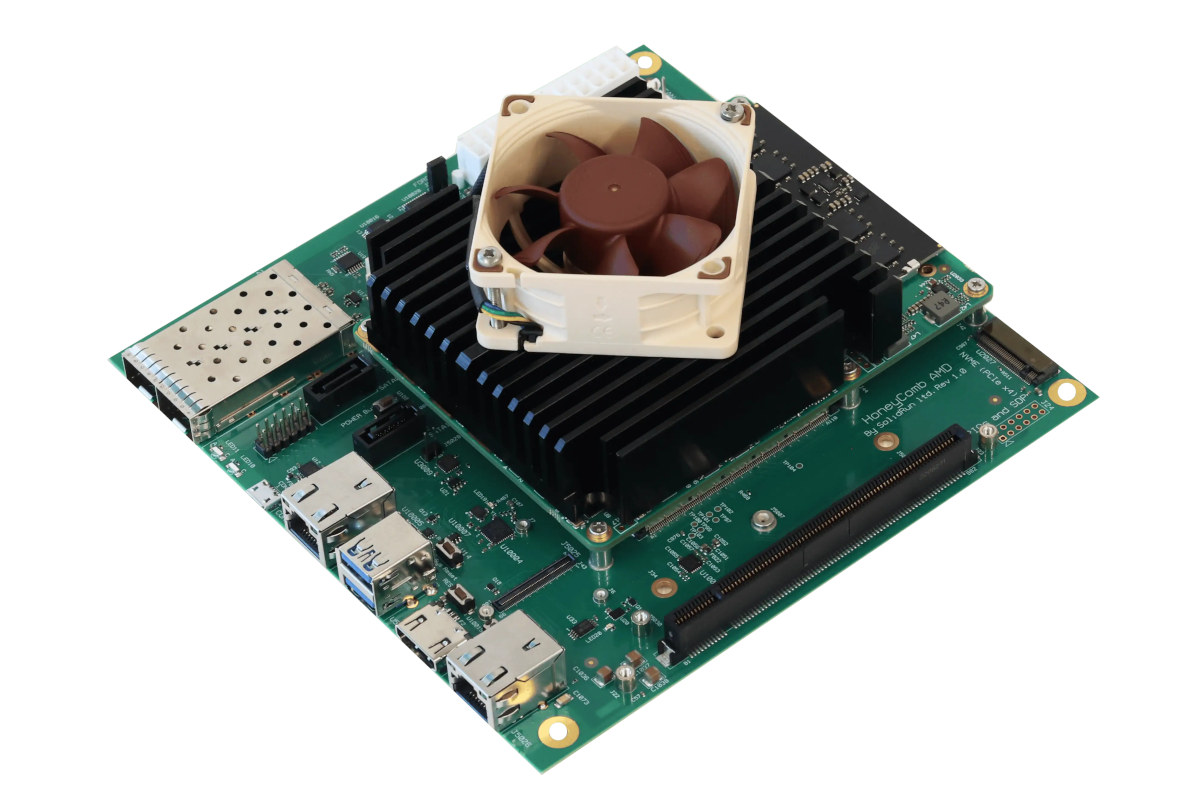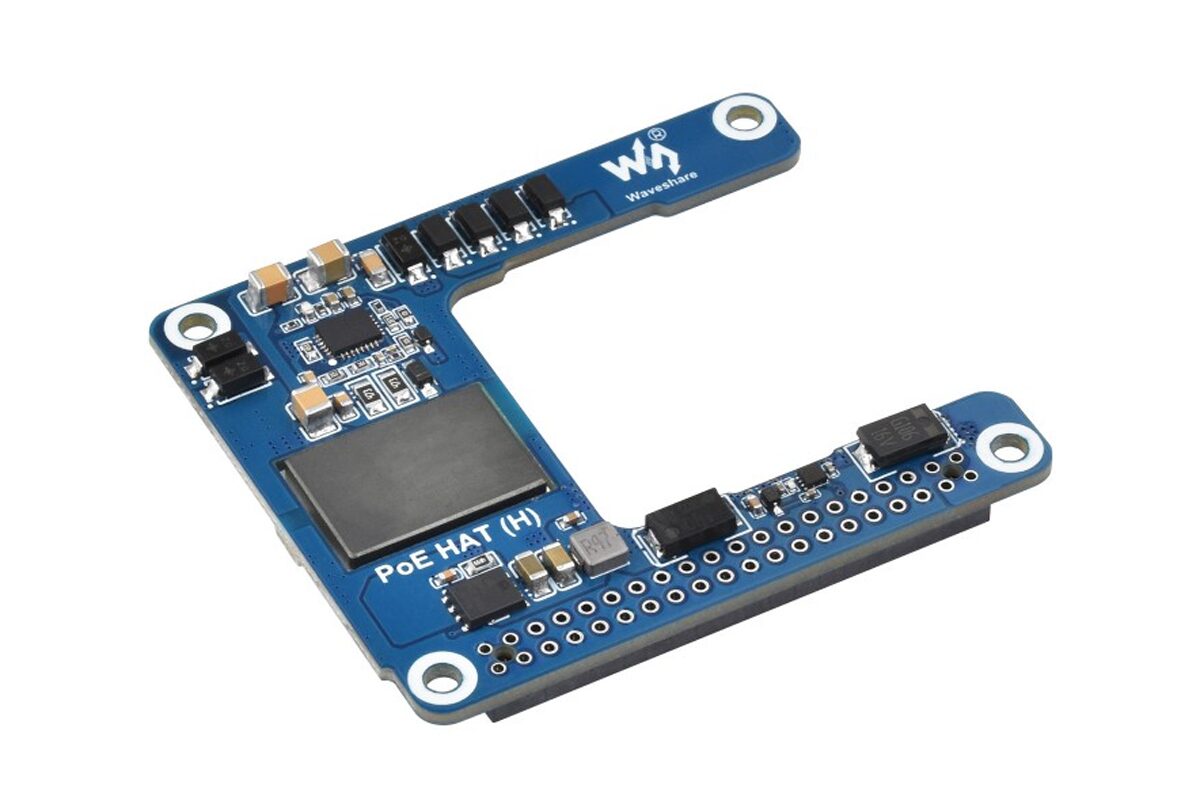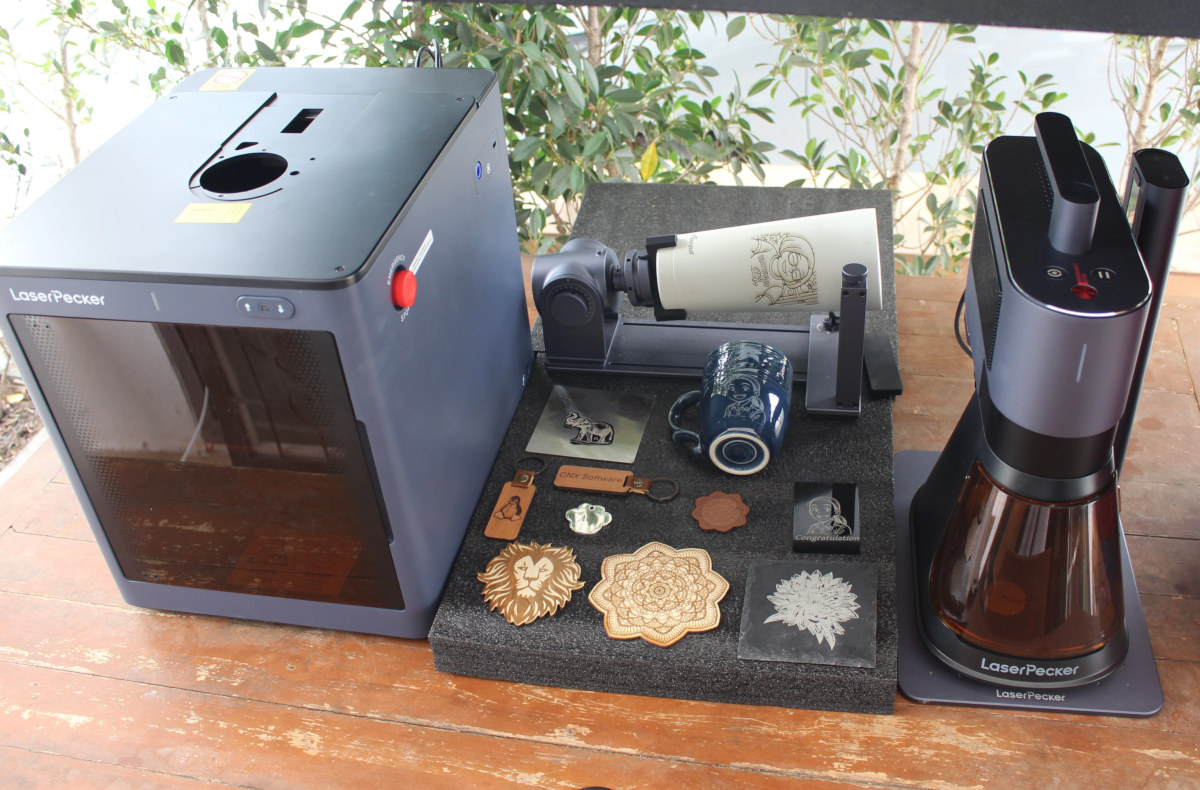Waveshare CM5-DUAL-ETH-MINI-BOX is a dual gigabit Ethernet router box designed for the Raspberry Pi CM5. It offers a familiar design with a metal enclosure that looks suspiciously similar to FriendlyELEC’s family of NanoPi routers powered by Rockchip processors, such as the NanoPi R2S Plus or NanoPi R3S. The router also features a microSD card slot to boot the OS on the Raspberry Pi CM5 Lite, a USB 3.0 Type-A port, a USB Type-C port for power and eMMC flash programming, power and boot buttons, and a 40-pin GPIO header accessible without opening the case (after lifting a cover). CM5-DUAL-ETH-MINI-BOX specifications: Supported SoMs – Raspberry Pi CM5 and CM5 Lite, and potentially compatible alternatives like the Raspberry Pi CM4, Orange Pi CM5, Radxa CM5, etc… Networking 2x Gigabit Ethernet RJ45 ports: one GbE exposed directly through the CM5 board-to-board connector, and the other via a RealTek RTL8111H PCIe controller WiFi 5 […]
Openviro Axe PoE is an RP2040-based environmental sensor for server rooms and cabinets (Crowdfunding)
Openviro Axe PoE is a rack-mountable, open-source environmental sensor designed to measure the temperature and humidity (and air pressure) in server rooms or cabinets with electrical equipment. The device is based on a Raspberry Pi RP2040 board with Ethernet connectivity housed in an aluminum enclosure and equipped with two RJ12 connectors for Bosch BME280 sensors with an accuracy of +/- 0.5°C. It provides better results than sensors placed in a machine that may be impacted by the internal components’ heat dissipation. For instance, the two sensor inputs can be used to measure the temperature and humidity of the intake and exhaust in a server rack. Openviro Axe PoE specifications: Microcontroller – Raspberry Pi RP2040 dual Arm Cortex-M0+ @133 MHz with 264 KB SRAM Storage – 16 MB flash memory Network – 10/100Mbps Ethernet RJ45 port via LAN8710Ai Expansion – 2x RJ12 connector for THP Probes Misc – 3x Buttons Power […]
Solar-powered WisMesh Repeaters extend the range of Meshtastic networks
RAKWireless has launched two solar-powered Meshtastic range extenders/repeaters: the WisMesh Repeater with a larger battery and external solar panel, and the WisMesh Repeater Mini with a more compact design with an integrated solar panel Meshtastic open-source firmware allows LoRa nodes to be used for off-grid messaging, GPS coordinates sharing, and more. The mesh network relies on nodes to communicate with each other and relay messages to other nodes if needed. However, this does not work reliably when nodes are too far apart or one node goes offline for whatever reason. That’s when Meshtastic repeaters are needed. WisMesh Repeater / Repeater Mini specifications: WisBlock RAK4631 Core Module Wireless SoC – Nordic Semi nRF52840 Cortex-M4F MCU @ 64 MHz with 1MB flash, 256 KB RAM, BLE 5.0, pre-flashed with Meshtastic firmware LoRa transceiver – Semtech SX126x series with support for Meshtastic 8xx and 9xx MHz networks 800 MHz – RU864/ IN865/ EU868 […]
ALPON X4 – A Raspberry Pi CM4 fanless Edge Computer with 4G LTE cellular connectivity
SixFab ALPON X4 is yet another fanless Raspberry Pi CM4-powered edge computer whose main selling point is built-in 4G LTE cellular connectivity with an eSIM, besides two Ethernet ports, and dual-band WiFi 5 and Bluetooth 5.0 on the system-on-module. The edge computer ships with 8GB RAM and 32GB eMMC flash by default, but another Raspberry Pi CM4 can be used upon request. Other ports include HDMI video output, two USB 2.0 ports, and an RJ11 jack for GPIO expansion. The system supports three power options: USB PD, a 9V to 30V DC input terminal block, or PoE. ALPON X4 specifications: SoM – Raspberry Pi CM4 SoC – Broadcom BCM2711 CPU – Quad-core Cortex-A72 SoC @ 1.5GHz GPU – VideoCore VI with support for OpenGL ES 3.1 and Vulkan 1.0 VPU Decode – H.265/HEVC up to 4Kp60, H.264 up to 1080p60 Encode – H.264 up to 1080p30 Memory – 8GB LPDDR4-3200 […]
HoneyComb Ryzen V3000 – An AMD Ryzen V3C18I mini-ITX motherboard with dual 10Gbps SFP+, 2.5GbE, dual SATA III
SolidRun HoneyComb Ryzen V3000 is a mini-ITX motherboard powered by an AMD Ryzen Embedded V3C18I processor, supporting up to 64GB of DDR5 memory and M.2 PCIe NVMe SSD storage, and equipped with two 10 Gbps Ethernet SFP+ cages, a 2.5GbE RJ45 jack, and two SATA III ports for advanced networking and storage applications. The solution is comprised of a mini-ITX motherboard and a Ryzen V3000 CX7 COM Express module, which the company introduced in 2022. As an industrial motherboard, it’s designed to operate in the -40°C to +85°C temperature range. HoneyComb Ryzen V3000 specifications: Ryzen V3000 CX7 COM Express module SoC – AMD Ryzen Embedded V3C18I octa-core/16-thread processor clocked at 1.9 GHz / 3.8 GHz (Turbo) with 4 MB L2 cache and 16 MB L3 cache; TDP: 15W System Memory – Up to 64GB (2x 32GB), ECC/Non-ECC DDR5 memory up to 4800 MT/s via two SODIMM sockets. Dimensions – 125 […]
Thin PoE HAT for Raspberry Pi 5 features isolated SMPS, fits inside the official case, works with the active cooler
Waveshare has launched the PoE HAT (H), a thin Power over Ethernet(PoE) HAT for the Raspberry Pi 5 that easily fits inside the official case and works with the active cooler. The HAT is specially designed for the Raspberry Pi 5 and supports IEEE 802.3af/at PoE standards. It features an isolated switched-mode power supply (SMPS) that delivers a stable 5V/5A output through the GPIO header. The board includes a standard 40-pin GPIO header and relies on a low-profile PoE IC. Waveshare PoE HAT (H) Specifications: Compatibility – Raspberry Pi 5 Expansion – 40-pin Raspberry Pi GPIO header Cooling Fits inside the official Raspberry Pi 5 case Compatible with the official active cooler Misc – Onboard original IC for stable PoE performance Power Supply IEEE 802.3af/at compliant Isolated switched-mode power supply (SMPS) PoE power input – 37V to 57V DC Output via GPIO header – 5V, 5A (max) Dimensions – 65 x 56.5 […]
Avaota F1 – A tiny camera board based on Allwinner V821 RISC-V SoC with built-in WiFi and 64MB DDR2
The Avaota F1 is an ultra-small, open-source hardware Linux SBC powered by an Allwinner V821 32-bit RISC-V camera SoC with 64MB on-chip DDR2 and built-in 2.4 GHz WiFi 4, and designed for camera applications with a MIPI CSI connector. The 35×22 mm board also features a 32MB NOR flash, an analog microphone, a USB-C port for power, data, and programming, two 15-pin GPIO headers, a FEL button, and a user LED. It looks like it will be offered as a development kit with a 1080p30 camera and a 3.5-inch or 1.54-inch SPI display. I also think it’s the first time I’ve seen a Linux-capable application processor with built-in WiFi. Avaota F1 specifications SoC – Allwinner V821L2-WXX CPU 32-bit RISC-V CPU @ 1.2GHz with 16KB L1 D/I cache, 128KB L2 cache 32-bit RISC-V MCU @ 600 MHz with 16KB L1 I-cache, 8KB L1 D-cache Memory – 64MB DDR2 on-chip VPU – […]
LaserPecker LP5 Review – Part 2: A 20W diode & fiber laser engraver tested with LDS software, rotary extension, safety enclosure
We have already checked the specifications, done an unboxing, and shown how to assemble the LaserPecker LP5 2-in-1 fiber & diode laser engraver along with its safety enclosure and rotary extension in the first part of the review. In the second part of the review, we will report our experience using the LaserPecker LP5 laser engraver with various materials such as plywood, stainless steel, rubber, and aluminum, as well as a ceramic cup and an insulated tumbler using either the LDS software on Windows or the LDS mobile apps on an iPad. Using the LaserPecker LP5 laser engraver with LDS software LaserPecker Design Space (LDS) is a laser engraving and cutting software designed specifically for the LaserPecker laser engravers. It’s meant to allow users to easily create projects with personalized engraving, complex patterns, and precise cutting of various materials. It can run on Windows and macOS with Intel or Apple […]



